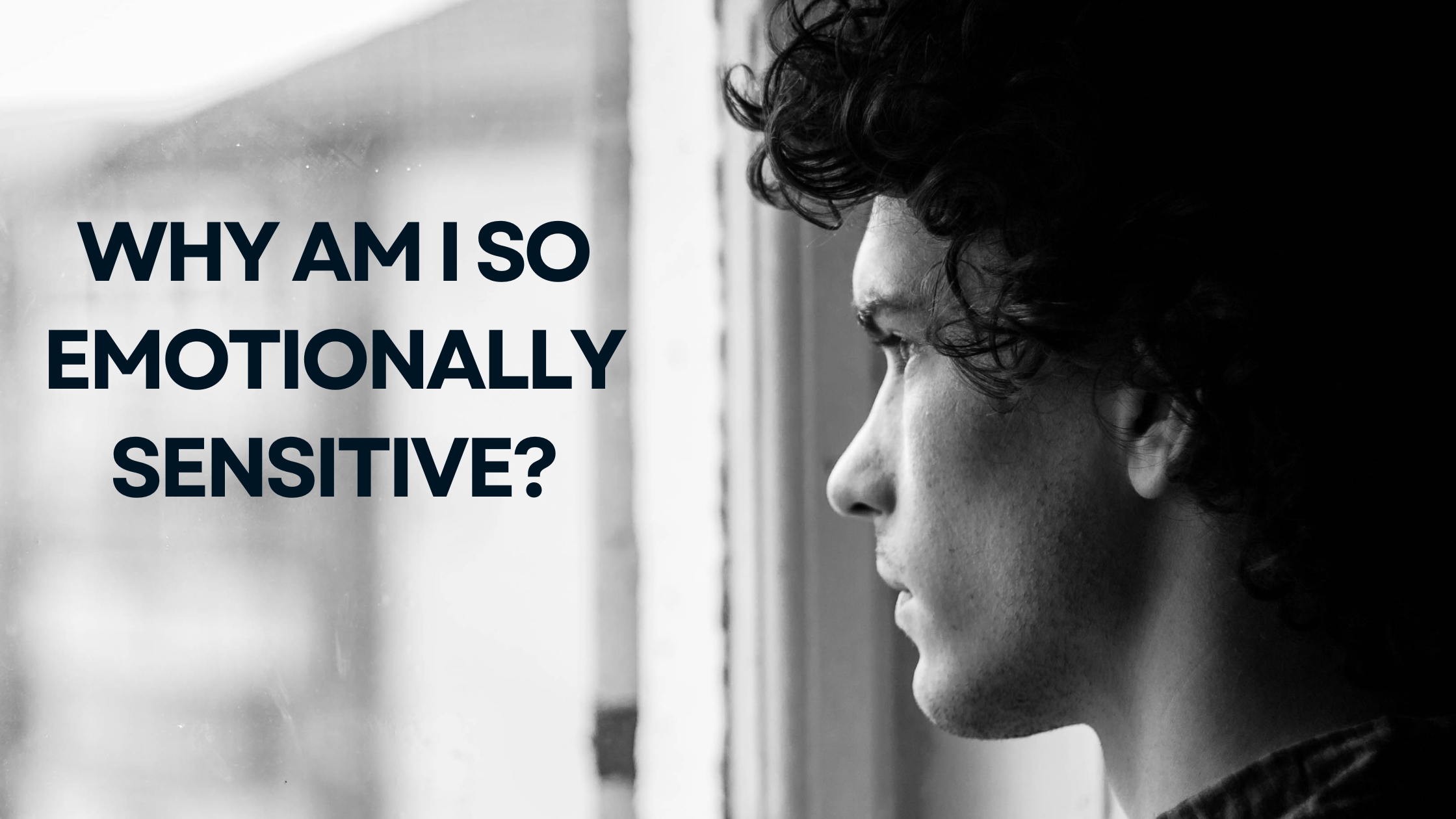Why am I so Emotionally Sensitive: Emotional sensitivity is a characteristic that differs widely among people. Some people seem to handle the complexities of emotions effortlessly, while others find themselves majorly affected by the ebb and flow of feelings. If you frequently find yourself asking, “Why am I so emotionally sensitive?” you’re not alone. Emotional sensitivity is a unique characteristic of personality that can be affected by different factors, including biology, environment, and life experiences. In this article, we will talk about the different reasons behind emotional sensitivity, its possible benefits and challenges, and techniques for handling this aspect of your personality.
Also Read:
Why am I so Emotionally Sensitive?
Emotional sensitivity contains a heightened awareness and responsiveness to one’s own emotions and the emotions of others. People who identify as emotionally sensitive often experience feelings more powerfully and may react more profoundly to external triggers. This heightened emotional responsiveness can be a double-edged sword, showing both benefits and challenges.
Biological Factors
The Highly Sensitive Person
Research suggests that some people are biologically predisposed to be more sensitive to triggers, a trait often referred to as being a Highly Sensitive Person (HSP). Such a person’s brain of HSPs may process information more deeply and reflect on it more thoroughly, contributing to elevated emotional reactions.
Genetic Reasons
Genetic aspects play a role in shaping personality traits, including emotional sensitivity. If there is a family history of emotional sensitivity or related qualities, there may be a genetic inclination to experience emotions more intensely.
Environmental Factors
Early Life Experiences
Childhood experiences can greatly impact emotional sensitivity. People who experience a nurturing and supportive environment may create a strong emotional awareness. Contrarily, those who face trouble or trauma may create heightened sensitivity as a coping mechanism.
Parental Influence
Parents and caregivers act as direct role models during early growth. If caregivers display emotional sensitivity and expressiveness, it can impact a child to develop similar traits. Contrarily, a lack of emotional expression may add to heightened sensitivity as a way of compensating for unmet emotional requirements.
Cultural and Social Influences
Cultural and societal norms play a powerful role in shaping how emotions are expressed and perceived. In cultures that value emotional expression, people may feel more comfortable being emotionally sensitive. On the other hand, in cultures that highlight emotional restraint, sensitivity may be sensed as a challenge.
Benefits of Emotional Sensitivity
Helpful in Understanding Others
Emotionally sensitive people often possess a high degree of empathy, allowing them to connect with and understand the emotions of others. This capacity for empathy can strengthen interpersonal relationships and promote a sense of community.
Artistic Expression
Emotional sensitivity is often linked to creativity. Many artists, writers, and musicians get motivation from their intense emotional experiences, channeling them into works of art that resonate with others.
Heightened Intuition
Emotional sensitivity can be displayed as heightened intuition. Emotionally sensitive people may be more attuned to subtle cues and gut feelings, allowing them to handle situations with a heightened sense of awareness.
Deep Personal Connections
Emotional sensitivity often cracks into the capacity to form deep, genuine connections with others. This quality enables familiarity and a sense of understanding within relationships.
Challenges of Emotional Sensitivity
Emotional Exhaustion
Continuous exposure to intense emotions can be exhausting. Emotionally sensitive people may find themselves feeling overwhelmed and emotionally drained, especially in high-stress situations.
Sensitive to Criticism
Sensitivity to criticism is a common challenge for emotionally sensitive people. They may internalize negative feedback more deeply, affecting their self-esteem and confidence.
Face Difficulty Setting Boundaries
A desire to please others and avoid conflict can lead emotionally sensitive people to stumble with setting and maintaining boundaries. This can result in overcommitment and a hesitation to say no.
Social Anxiety
Fear of rejection or judgment can contribute to social anxiety. Emotionally sensitive people may be cautious about revealing their true selves, fearing how others will see them.
Strategies for Handling Emotional Sensitivity
Self-Awareness
Developing self-awareness is a basic step in handling emotional sensitivity. Identify specific situations, environments, or people that activate heightened emotional reactions. This awareness allows you to foresee challenges and execute coping strategies.
Mindfulness and Meditation
Practices such as mindfulness and meditation can help ground you in the present moment. These techniques enable observing and accepting emotions without judgment, delivering a useful tool for managing emotional reactivity.
Healthy Coping Mechanisms
Build a toolkit of healthy coping tools to handle intense emotions. This may include activities such as journaling, deep breathing exercises, or engaging in creative platforms. Experiment with various techniques to discover what works best for you.
Set Boundaries
Establishing boundaries is important for emotional well-being. Practice passion and learn to say no when necessary. Communicate your limits to others and prioritize self-care.
Seek Support from Close People
Share your experiences with trusted friends, family members, or a therapist. Connecting with others who understand or share similar experiences can deliver validation and support.
Develop Coping Skills
Develop emotional regulation skills to handle intense emotions effectively. This may include learning to identify and challenge negative thought patterns, practicing positive affirmations, or engaging in activities that encourage emotional balance.
Focus on Your Strengths
Adopt the positive characteristics of emotional sensitivity. Acknowledge the strengths it brings, such as empathy, creativity, and intuition. Celebrate your special qualities and identify the value they add to your life and the lives of those around you.
Therapy and Counseling
If emotional sensitivity greatly affects your daily life, seeking professional guidance can be extremely beneficial. A therapist or counselor can deliver tailored strategies to help you navigate challenges, process emotions, and build strength.








